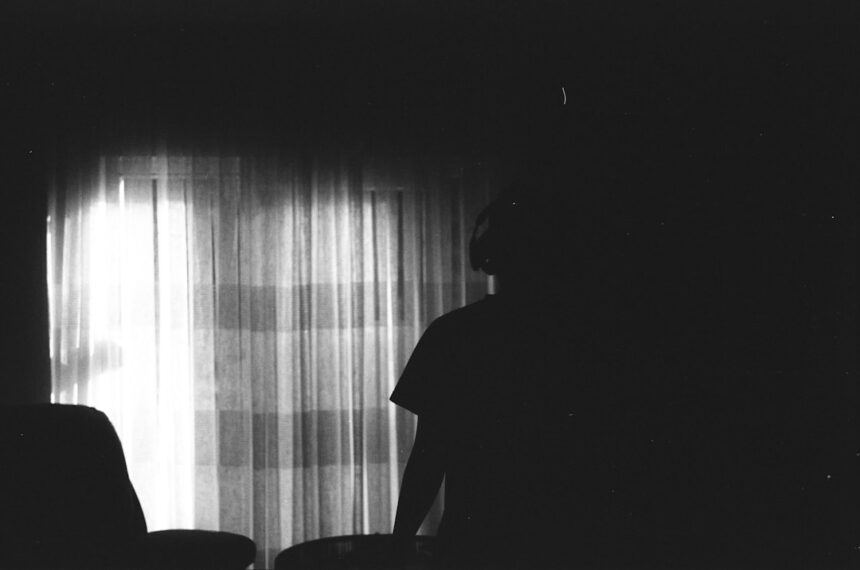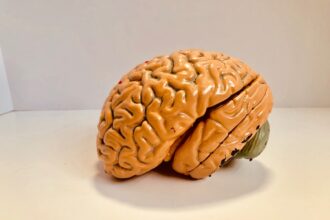Depersonalization Derealization Disorder (DPDR) is a complex and often misunderstood mental health condition that can leave you feeling detached from your own thoughts, feelings, and sense of self. You may experience a sense of unreality regarding your surroundings, as if the world around you is a dream or a movie. This disconnection can be unsettling, leading to feelings of anxiety and confusion.
It’s important to recognize that DPDR is not simply a fleeting feeling of being out of touch; it is a persistent condition that can significantly impact your daily life. The symptoms of DPDR can manifest in various ways. You might find yourself feeling as though you are observing your life from outside your body, or you may perceive your environment as distorted or unreal.
These experiences can be triggered by stress, trauma, or even substance use. Understanding the nature of DPDR is crucial for you to navigate its challenges effectively. It’s essential to acknowledge that while these feelings can be distressing, they are not indicative of a loss of sanity or a sign that you are “going crazy.” Instead, they are symptoms of a disorder that can be managed with the right strategies and support.
Key Takeaways
- Depersonalization Derealization Disorder is characterized by feeling detached from oneself and the world, often leading to significant distress and impairment in daily functioning.
- The natural course of Depersonalization Derealization Disorder varies, with some individuals experiencing spontaneous resolution while others may have a chronic course.
- Factors such as trauma history, comorbid mental health conditions, and stress can influence the resolution of Depersonalization Derealization Disorder.
- Self-help strategies such as mindfulness, grounding techniques, and stress management can be effective in managing symptoms of Depersonalization Derealization Disorder.
- Seeking professional help from a therapist or psychiatrist is important for receiving appropriate treatment and support for Depersonalization Derealization Disorder.
The Natural Course of Depersonalization Derealization Disorder
The natural course of DPDR can vary significantly from person to person. For some, the symptoms may be transient, arising in response to acute stress or trauma and resolving on their own over time. You might find that after a particularly stressful period, the feelings of depersonalization or derealization diminish as you regain a sense of normalcy in your life.
However, for others, the disorder can become chronic, leading to ongoing struggles with these disorienting sensations. Understanding the potential trajectory of DPDR is vital for managing your expectations and planning your recovery. If you experience chronic symptoms, it’s essential to recognize that this does not mean you are stuck in this state indefinitely.
Many individuals find that with appropriate interventions and support, they can experience significant improvement over time. The key lies in recognizing the patterns of your symptoms and being proactive in seeking help when needed.
Factors that Influence Resolution of Depersonalization Derealization Disorder

Several factors can influence the resolution of DPDR, and understanding these can empower you in your journey toward recovery. One significant factor is the presence of underlying mental health conditions, such as anxiety or depression. If you are grappling with these issues alongside DPDR, addressing them may lead to an alleviation of your dissociative symptoms.
It’s crucial to take a holistic approach to your mental health, recognizing that all aspects of your well-being are interconnected. Another influential factor is the support system you have in place. The people around you—friends, family, or support groups—can play a pivotal role in your recovery process.
Having a network that understands what you’re going through can provide comfort and validation during difficult times. Additionally, engaging in therapeutic practices or support groups can foster a sense of community and shared experience, which may help you feel less isolated in your struggles.
Self-Help Strategies for Managing Depersonalization Derealization Disorder
| Self-Help Strategy | Description |
|---|---|
| Grounding Techniques | Practicing mindfulness, deep breathing, and using sensory stimuli to stay connected to the present moment. |
| Physical Exercise | Engaging in regular physical activity to reduce stress and improve overall well-being. |
| Healthy Lifestyle Choices | Eating a balanced diet, getting enough sleep, and avoiding alcohol and drugs to support mental health. |
| Stress Management | Learning and practicing stress-reduction techniques such as meditation, yoga, or progressive muscle relaxation. |
| Seeking Support | Connecting with a therapist, support group, or trusted individuals to share experiences and receive guidance. |
Incorporating self-help strategies into your daily routine can be an effective way to manage the symptoms of DPDR. One approach is grounding techniques, which help anchor you in the present moment. You might try focusing on your physical sensations—feeling the texture of an object in your hand or listening intently to the sounds around you.
These practices can help bridge the gap between your internal experiences and the external world, reducing feelings of detachment. Mindfulness and meditation are also powerful tools for managing DPDR. By cultivating awareness of your thoughts and feelings without judgment, you can create a sense of calm and stability within yourself.
Regular practice can enhance your ability to cope with dissociative episodes when they arise. Additionally, journaling about your experiences can provide an outlet for processing your emotions and tracking patterns in your symptoms over time.
Seeking Professional Help for Depersonalization Derealization Disorder
While self-help strategies can be beneficial, seeking professional help is often a crucial step in managing DPDR effectively. A mental health professional can provide you with tailored guidance and support based on your unique experiences. Therapy options such as cognitive-behavioral therapy (CBT) have shown promise in treating DPDR by helping you reframe negative thought patterns and develop coping mechanisms.
In therapy, you will have the opportunity to explore the underlying causes of your depersonalization and derealization experiences.
Additionally, a therapist can help you develop personalized strategies for managing symptoms when they arise, equipping you with tools to navigate challenging moments more effectively.
The Role of Medication in Resolving Depersonalization Derealization Disorder

Medication may play a role in the treatment of DPDR for some individuals, particularly if there are co-occurring mental health conditions such as anxiety or depression. Antidepressants or anti-anxiety medications may be prescribed to help stabilize mood and reduce symptoms associated with these disorders. If you are considering medication as part of your treatment plan, it’s essential to have an open dialogue with your healthcare provider about potential benefits and side effects.
It’s important to note that medication alone is not typically sufficient for resolving DPDR; it is often most effective when combined with therapeutic interventions. Your healthcare provider can work with you to create a comprehensive treatment plan that addresses both medication management and therapeutic support, ensuring that you receive holistic care tailored to your needs.
Lifestyle Changes to Support Recovery from Depersonalization Derealization Disorder
Making lifestyle changes can significantly impact your recovery from DPDR. Prioritizing self-care is essential; this includes maintaining a balanced diet, engaging in regular physical activity, and ensuring adequate sleep. These foundational aspects of health contribute to overall well-being and can help mitigate symptoms associated with DPDR.
Additionally, reducing stress through relaxation techniques such as yoga or deep breathing exercises can be beneficial. Engaging in activities that bring you joy and fulfillment—whether it’s spending time with loved ones, pursuing hobbies, or connecting with nature—can also foster a sense of grounding and connection to the world around you. By creating a supportive environment for yourself, you enhance your ability to cope with the challenges posed by DPDR.
The Importance of Support Systems in Overcoming Depersonalization Derealization Disorder
Having a strong support system is invaluable when navigating the complexities of DPDR. Friends and family who understand what you’re experiencing can provide emotional support and encouragement during difficult times. Sharing your feelings with trusted individuals can help alleviate feelings of isolation and foster connection.
Support groups specifically focused on dissociative disorders can also be beneficial. Connecting with others who share similar experiences allows for mutual understanding and validation. These groups provide a safe space for discussing challenges and successes in managing DPDR, reinforcing the idea that you are not alone in your journey toward recovery.
Building and nurturing these connections is an essential aspect of overcoming the hurdles associated with depersonalization and derealization. In conclusion, understanding Depersonalization Derealization Disorder is the first step toward managing its effects on your life. By recognizing the natural course of the disorder, identifying influential factors for resolution, employing self-help strategies, seeking professional assistance when necessary, considering medication options, making lifestyle changes, and fostering supportive relationships, you can take proactive steps toward reclaiming your sense of self and reality.
Remember that recovery is a journey; each step forward is a testament to your resilience and commitment to healing.
Depersonalization-derealization disorder (DDD) can be a distressing experience, leaving individuals feeling detached from their own thoughts and surroundings. While some people may wonder if this condition can resolve on its own, it’s important to understand the complexities involved. According to an article on Unplugged Psych, recovery from DDD often requires a combination of therapeutic interventions and self-care strategies. The article emphasizes the importance of seeking professional help to address underlying issues and develop coping mechanisms, as spontaneous remission is not guaranteed for everyone.
LEARN MORE About Depersonalization & Derealization
FAQs
What is depersonalization-derealization disorder?
Depersonalization-derealization disorder is a mental health condition characterized by feeling detached from oneself (depersonalization) and feeling detached from the world around them (derealization). It can be distressing and impact daily functioning.
Can depersonalization-derealization disorder go away on its own?
In some cases, depersonalization-derealization disorder may go away on its own without treatment. However, this is not the case for everyone, and it is important to seek professional help if you are experiencing symptoms of this disorder.
What factors contribute to depersonalization-derealization disorder going away on its own?
There is no definitive answer as to why depersonalization-derealization disorder may go away on its own for some individuals. It may be related to changes in stress levels, life circumstances, or other factors that impact mental health.
What are the treatment options for depersonalization-derealization disorder?
Treatment for depersonalization-derealization disorder may include therapy, medication, and self-care strategies. Cognitive-behavioral therapy (CBT) and mindfulness-based approaches are commonly used to help individuals manage symptoms.
Is it advisable to wait for depersonalization-derealization disorder to go away on its own?
It is not advisable to wait for depersonalization-derealization disorder to go away on its own, as it can cause distress and impact daily functioning. Seeking professional help is important for managing symptoms and improving quality of life.




